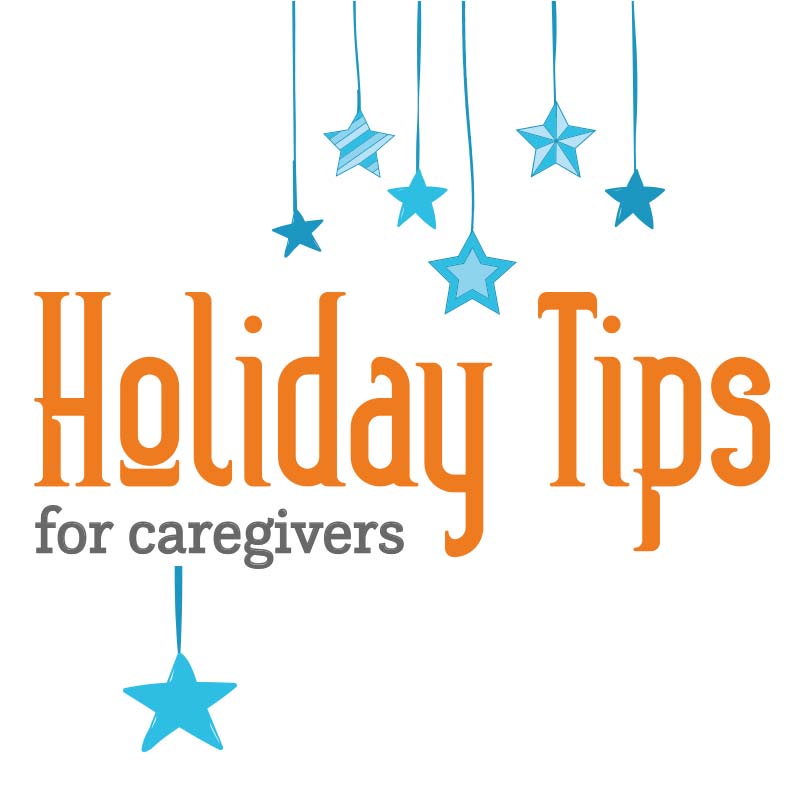Holiday Tips for Caregivers 2018

As a caregiver, you probably have mixed feelings about the holidays. Happy memories of the past may conflict with worry about the extra demands made on your time and energy. Below are ways to balance the holidays while taking care of yourself.
- Understand the Emotions
- Is there a sense of loss for the way things used to be?
- Are you experiencing guilt for not doing enough?
- Are you having feelings of discomfort?
- Is there denial about accepting change?
- Prepare the Person with Dementia
- Show photos & talk about visiting family members
- Play familiar music and serve favorite holiday food
- Visit the doctor to address any health issues
- Familiarize your loved one with others who might be providing care during this time
- Prepare the Caregiver
- Exercise, eat well and take care of yourself
- Assign chores and activities to others
- Plan for breaks and down time
- Plan time to spend with other family members
- Be realistic about what you can and cannot do
- Give yourself permission to take some time off from caregiving
- It is okay to say no – you don’t have to accept all invitations to dinner or gatherings
- Prepare Other Family Members
- Educate family members about limitations
- Provide information about communication tips
- Share changes in behaviors and how to respond
- Help manage their expectations
Preparing the Home
- Keep an area that is calm and quiet for relaxing
- Avoid confusing items like artificial food and edible decorations
- Keep decorations simple – avoid flashing lights and decorations that make noise
- Run through a safety checklist – remove throw rugs, clutter, cords on the floor
Adapt holiday traditions
- Change family gatherings to a time that is better for you and your loved one
- Limit the number of people at gatherings
- Find a quiet and calming location
- Set an end time for gatherings
- Plan for activities that everyone will enjoy
Gift Suggestions
Share your wish list with family and friends:- Bathing – waterproof radio, shower chair, hand-held showerhead, night light
- Dressing – clothing that is easy to put on/off, slip on shoes, non-skid socks, slippers
- Photo albums, picture books
- Gift certificates
- Donations to a favorite charity
- Advise against brain games, electronics, pets, breakable items
- Planning Activities
- Schedule visiting times for family and friends
- Schedule naps and quiet time
- Identify activities they can do with other family members, such as walks, making cookies, wrapping packages, setting the table
- Identify simple repetitive activities to maintain calmness, such as folding napkins, cracking nuts
- Avoid malls and stores that are crowded
- Holiday at a Facility
- Try a small family gathering at the facility
- Join the facility’s festivities
- Minimize visitor traffic to 2-3 people at a time
- Schedule visits for the person’s best time of day
- Bring or plan activities such as unwrapping gifts, strolling the facility, sharing old family memories
- Travel Wisely
- Consider your loved one’s abilities and limitations when planning travel
- Never leave your loved one alone
- Avoid peak travel hours and allow extra time
- Stick to daily routines as much as possible
- Have identification on your loved one such as ID bracelet, clothing labels, tracking devices
- Share your travel plans with a family member
Adapted from National Institute on Health and USF Health Byrd Alzheimer’s Institute
Published On: December 3rd, 2018Categories: Programs & Services
